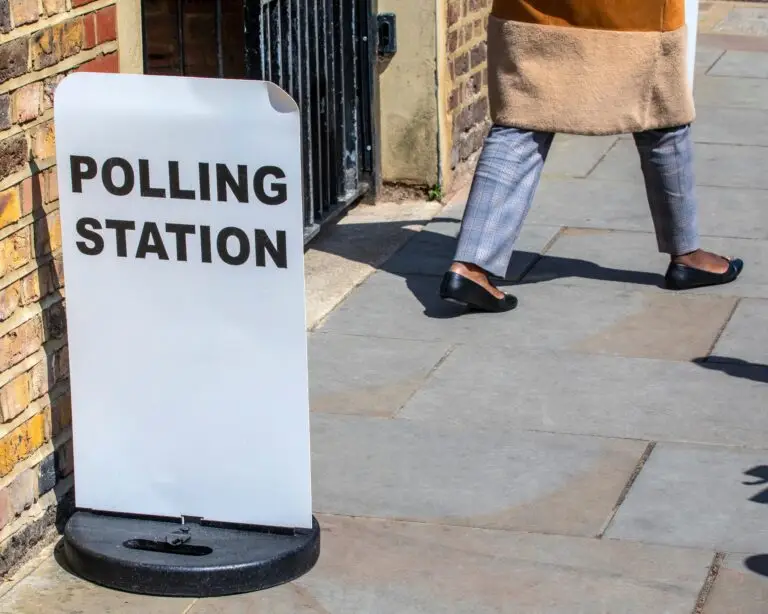With very little fiscal room to play with, the Chancellor’s Spring Budget last month was much more focused on taxation than public spending. Trying to square the circle of having low-growth and higher taxation, alongside faltering public services and high levels of national debt, the Chancellor saw the chance to cut national insurance contributions in an effort to improve household finances ahead of a general election this year. This retail offer surprised some, as polls showed that voters would have preferred the Government to prioritise public spending over tax cuts. Moreover, the reality remains that there are persistent funding shortfalls across the entirety of the public sector, including within the education system. But what does this shortfall look like for each of the education levels?
Early Years
The early years sector continues to pose a funding conundrum for all stakeholders in the sector. In March 2023, the Government announced an increase in the number of hours parents are entitled to, giving working families: 15 hours of free childcare for 9 to 23-month-olds from September 2024, increasing to 30 hours from September 2025; and 15 hours for 2-year-olds from April 2024, increasing to 30 hours in September 2025. These free childcare hours cover explicitly the care cost, meaning any additional costs (i.e. food and trips) are to be covered by the parent or carer.
The increase in entitlements is aimed at tackling the high cost of childcare that is stopping young parents, especially young mothers, from re-entering the workforce. Parents in the UK pay the highest percentage of income on childcare in Europe, according to data from the OECD, with European peers benefitting from highly-subsidised childcare.
A concerning phenomenon occurring in the UK is that additional costs of childcare beyond that which parents are entitled to means that it can be more expensive to attempt to work more hours. The result is parents often choose to delay going back to work or work part-time. Additionally, this support is capped if one parent earns over £100,000 per annum, motivating high earners to reduce their working hours so they are under the threshold. In an effort to kickstart a lacklustre economy, parents refraining from re-entering the workforce or allowing costs to impact their salary levels is a serious issue that political stakeholders must get to grips with.
Importantly, providers are concerned about how the increase in entitlement will impact capacity within the sector to be able to facilitate this. Nursery providers have described this policy as “the end of nurseries” as the increase in free entitlement hours aren’t fully covered by the associated increase in government funding, alongside other policies such as the increase in the National Minimum Wage impacting costs further.
Schools
Schools continue to face increasing pressures on their budgets, despite spending per pupil increasing above inflation, due to school costs rising at a faster rate. This includes inflationary pressures such as increased staff pay and higher energy bills.
The distribution of funding shortfalls in the education sector however is not equal. Special schools in particular will see an increase in costs as they rely more heavily on support staff, who are due to see the biggest pay increases.
Additionally, the projected fall in primary pupil numbers by 13 per cent over the coming decade means primary schools will see a fall in funding that will not match a fall in costs. This will put an additional
squeeze on primary schools and in some cases will cause closures as budgets cannot sustain the lower pupil numbers. The impact of this will be most severe in London, where in the next decade the number of 5-year-olds is expected to fall by a tenth, according to the Office for National Statistics, because of an increasing number of families moving out of the capital in search of more affordable housing.
Schools will see even more pressures on their budgets, following the Government’s recent announcement it will stop funding the National Tutoring Programme at the end of this academic year. This will mean schools will have to pay for the full costs out of their own budgets or cut tutoring altogether. The reality of the ensuing funding gap is that schools in disadvantaged communities, where the need is greatest, will be the least likely to be able to provide the programme. This has the potential to exacerbate the already widening attainment gap; learning recovery for the most disadvantaged is proving to be very challenging and the socio-economic attainment gap has widened since the pandemic. This gap has significant long-term economic consequences, as children with poorer attainment will become less economically active in the future and may become more reliant on public services, costing more for the taxpayer.
Further Education
Despite the recent attention given to apprenticeships and skills by the Government, Further Education (FE) is by no means exempt from these funding shortfalls. In fact, this part of the sector is facing some of the most dramatic financial challenges. According to the Institute for Fiscal Studies FE and skills have seen the largest cuts across all areas of education spending since 2010. This, coupled with the increases in costs seen across the sector from rising wages and higher energy bills has put FE colleges and sixth forms in a particularly difficult position in recent years.
The Spring Budget didn’t address this and saw no additional funding for FE or skills. Additionally, the Chancellor announced there would be no extension of the 16-19 tuition fund, which colleges and sixth forms across the country received to support students following the lost learning of the pandemic, putting even more strain on colleges.
Another one of the causes of the funding problems in FE is that the Government is currently overhauling the post-16 qualifications landscape, which is seeing many Level 3 Qualifications defunded unless they are a STEM subject or support sectors the Government considers to be strategically important. This is part of the Government’s broader move towards T Levels and is adding to the current strain felt in colleges across the country.
The Spring Budget did see the publication of the agreement for the deeper devolution deal for the North East Combined Mayoral Authority, giving it control of its adult education budget. This move puts the North East Combined Mayoral Authority on par with Greater Manchester Combined Authority (GMCA) and the West Midlands Combined Authority. However, the GMCA recently warned that it will not be able to increase the adult education funding rates in line with the Government’s new national adult education funding rates being brought in to non-devolved areas of England. This is due to concerns the increased funding rates will lead to a 22 per cent decrease in the number of people able to access the course. This highlights some of the limitations of the devolution deals in adult education, the impact of the wider shortfall in local authority funding and the fragmented nature of funding streams for both FE and adult education.
Higher Education
Higher Education is by no means exempt from a funding model crisis. UK universities are increasingly reliant on the tuition fees of international students, due to an almost decade-long freeze in domestic tuition fees. According to a recent report from The Times, the prestigious Russell Group Universities get 57% of their fees from international students, with University College London, Imperial College and the London School of Economics getting as much as 76 – 79 per cent of their fees from international students.
These figures reveal the reliance the higher education sector has on international students, which is a market more at risk of policy and wider global impacts, than domestic students. This reliance was highlighted in a recent investigation by The Times, which claimed that international students can “buy” their way onto courses at prestigious universities in the UK with much lower grade requirements than prospective domestic students; and this is encouraged by the universities because international students are a crucial to the their financial viability.
Heavy reliance on international students may work in the short term to resolve the funding shortfalls. However, there have already been recent signs of a downturn in international students at UK higher education institutions for the forthcoming academic year, leading to courses being dropped and university staff being made redundant.
Conclusion
Across the education sector in the UK, there are funding shortfalls due to a combination of long-term underinvestment and rising costs, putting significant strain on the sector. However, with neither the Government nor the Labour Party willing to make many huge spending pledges in the run-up to the general election, long-term solutions to these problems remain elusive.
Funding across the sector needs greater attention, support and commitment – a well-funded education system is essential for creating a thriving economy and more a secure, healthy and successful population. The longer it’s avoided, the further the can gets kicked down the road, the deeper and more engrained the challenges for the country become.





